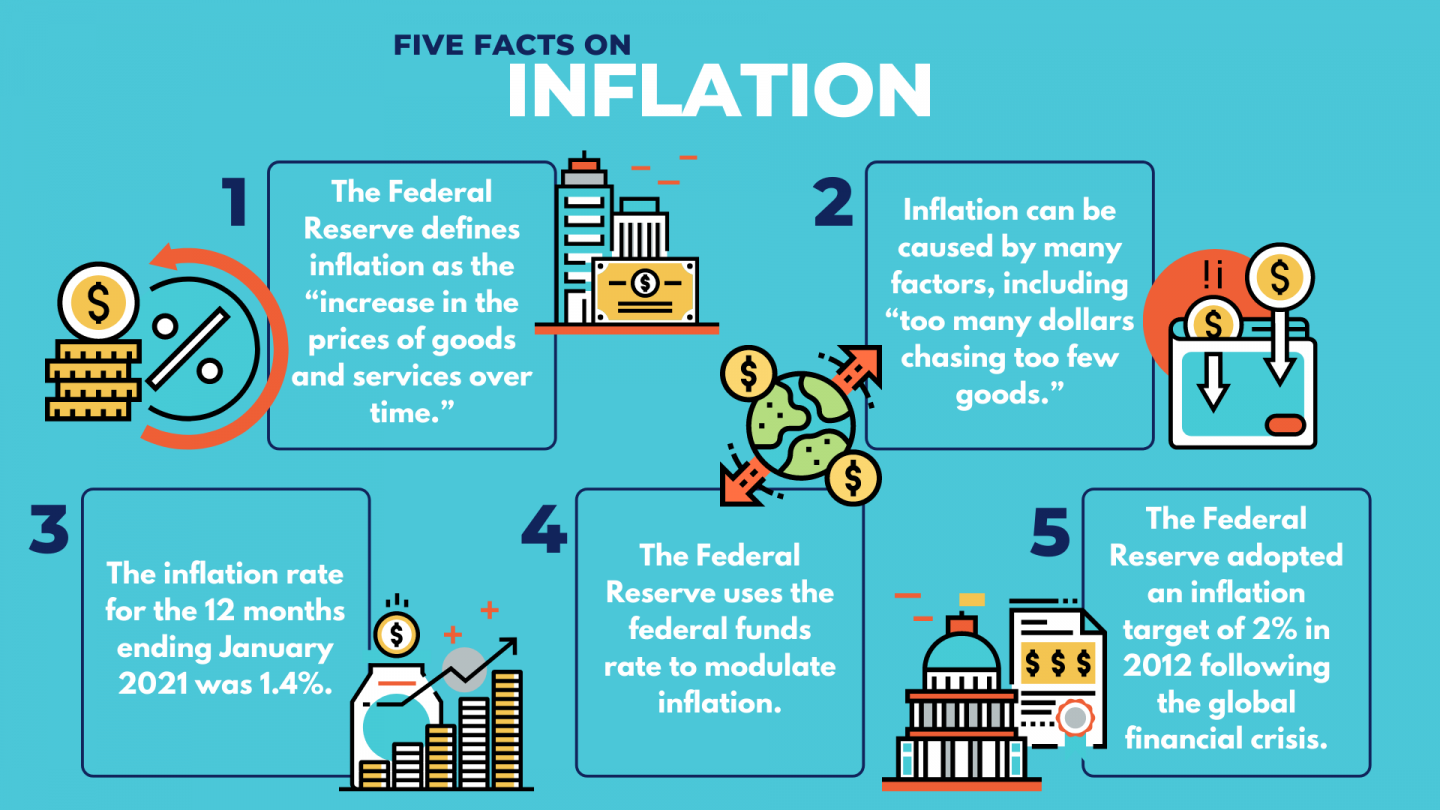Inflation
Inflation impact to business

What Is Inflation?
Inflation is the decline of purchasing power of a given currency over time. A quantitative estimate of the rate at which the decline in purchasing power occurs can be reflected in the increase of an average price level of a basket of selected good-sand services in an economy over some period of time. The rise in the general level of prices, often expressed as a percentage, means that a unit of currency effectively buys less than it did in prior periods.
Inflation can be contrasted with deflation, which occurs when the purchasing power of money increases and prices decline.

What Is the Inflation Target in Australia?
Australia's inflation target is to keep annual consumer price inflation between 2 and 3 per cent, on average, over time. The particular measure of consumer price inflation is the percentage change in the Consumer Price Index (CPI). This is a suitable measure of inflation to target because it captures price changes for the goods and services that households buy, is independently produced by the Australian Bureau of Statistics, is publicly available and does not get revised.
If inflation is too high:
- Consumers’ purchasing power – the real value of money – is reduced. If prices are increasing faster than people's nominal incomes, they will be able to afford fewer goods and services than before.
- Workers may then seek larger wage increases to compensate for the effects of higher inflation on their purchasing power. In turn, higher wage growth raises firms’ costs, which may lead firms to raise prices further and/or reduce the number of workers they employ.
- Spending and investment decisions may be distorted. This is because high inflation can influence when households make purchases or businesses make investment decisions. For example, if households expect higher inflation, they may make purchases sooner than originally planned to avoid paying more.
- Returns on investment may be lower. Inflation influences investment decisions because a higher inflation rate will reduce the real return on the investment. Inflation can also affect the real interest paid by borrowers to lenders. For example, if inflation turns out to be higher than expected when the loan was agreed, the lender will get less than they had planned because inflation reduces the purchasing power of the interest earnings they receive.
- Businesses need to update their prices more frequently and consumers spend more time comparing prices. This increases their uncertainty about the economy, which may discourage spending and investment and reduce economic growth.
- A country's international competitiveness may
be lowered. If inflation is higher in one country,
then the goods and services it produces will
become more expensive compared with other
countries (unless its currency depreciates).
If inflation is too low:
- Consumers may delay purchases if they expect prices to fall. As a result, falling prices – a situation called ‘deflation’ – can lead to lower spending. Businesses could respond by laying off workers or reducing wages which, in turn, places further downward pressure on demand and prices.
- Businesses facing difficult conditions may find it hard to reduce the real wages of their employees and may resort to laying off workers instead. This is because businesses that need to decrease their real wages usually choose to allow their nominal wages to grow at a rate that is below the general rate of inflation, and if inflation is very low this is more difficult to do.
Effects of Inflation on Businesses
Positive effects:
- Industry-wide price rises enable revenues to grow
- Growing revenues + constant gross margin = higher gross profit
- Makes using debt as a source of finance cheaper in real terms
Negative effects:
- If costs are rising due to inflation, a business may not be able to pass them onto customers (PED)
- Inflation can disrupt business planning and lead to lower investment
- Rising inflation is associated with higher interest rates - this reduces economic growth and can lead to a recession
The impact of inflation on consumers
Inflation reduces the purchasing power of money since more money is now needed to buy the same items.
High rates of inflation mean that unless income increases at the same rate, people are worse off. This leads to lower levels of consumer spending and a fall in sales for businesses.
- As prices rise (inflation) money loses its value and people lose confidence in money as the value of savings is reduced
- Inflation can get out of control - price increases lead to higher wage demands as people try to maintain their living standards
- Consumers on fixed incomes (e.g. pensioners) lose out because the their real incomes fall
Comments
Post a Comment